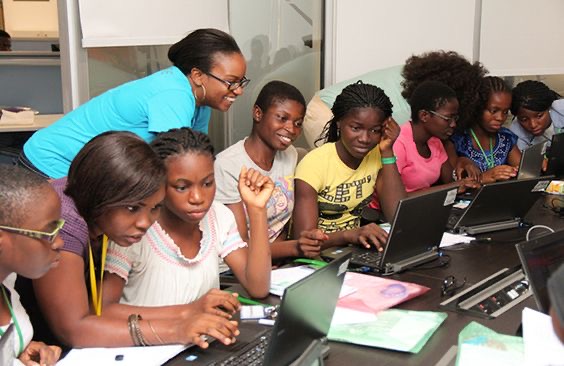When Nigeria liberalized the telecom sector in the early 2000s, it marked one of the most transformative moments in our history. At the heart of that revolution was Atiku Abubakar, then Vice President and Chair of the National Council on Privatization. Through the Bureau of Public Enterprises (BPE), Atiku helped midwife the breakup of NITEL’s monopoly, ushering in private-sector investment, competition, and most importantly — connectivity.

By 2001, mobile GSM service had launched. Within five years, Nigeria had grown from less than 500,000 telephone lines to over 30 million subscribers. That growth laid the foundation for the digital economy — everything from e-commerce and online banking to fintech, remote learning, and content creation.
But today, all of that progress is under threat. Under the Tinubu-led APC administration, internet data has become a luxury. Prices are rising, speeds are falling, and Nigeria’s youth — the most connected demographic in our country — are being digitally suffocated.
The Rising Cost of Data: A Digital Recession in Real Time
According to the Alliance for Affordable Internet (A4AI) and Statista, the average cost of 1GB of data in Nigeria in 2020 was around ₦360. As of mid-2025, that same 1GB costs ₦1,000 – ₦1,400, depending on the provider and region. That’s a 300–400% increase in just five years.
Here’s the breakdown of the crisis:
- The Naira devaluation under Tinubu’s administration (₦460/$1 in 2022 → over ₦1,500/$1 in 2025) has increased the cost of telecom infrastructure, most of which is imported.
- Fuel subsidy removal means base stations now run on diesel at ₦1,300 per litre, driving up operational costs for MTN, Airtel, Glo, and 9mobile.
- Multiple taxation and levies by federal, state, and local governments — including the controversial 5% excise duty on telecom services — have made matters worse.
- Inflation at over 33% means telecom companies are passing costs to consumers to survive.
The result? Over 30 million Nigerians have reduced their data usage, according to the Nigerian Communications Commission (NCC), while others have simply dropped off the digital grid.
Connectivity is Deteriorating — and the Numbers Prove It
The average broadband speed in Nigeria has dropped from 21.34 Mbps in 2021 to 11.76 Mbps in 2025 (Ookla Speedtest Global Index). That places Nigeria behind countries like Ghana, Kenya, and South Africa.
Broadband penetration, which rose to 45% under the Buhari administration, has now stalled at 42%, with little-to-no fresh investment in new fibre rollout or last-mile coverage.
This is happening at a time when the rest of the world is preparing for 5G-driven economies, while Nigeria is struggling to sustain 3G and 4G stability. Network congestion, frequent downtime, and poor customer experience are now normalized.
The Gen Z Crisis: No Data, No Future
Nigeria’s Gen Z population — estimated at over 70 million people under age 30 — relies on data for almost everything:
- Freelancing: Graphic design, copywriting, social media management, coding, and virtual assistance — all require stable, affordable internet.
- Education: E-learning platforms, online classes, digital libraries, and research are now essential for students and researchers.
- Entertainment: From YouTube and TikTok to Spotify and Netflix, youth-driven creative industries thrive on affordable broadband.
- Civic Engagement: From trending hashtags to virtual protests, data is political power.
When data becomes unaffordable, a generation loses access to knowledge, jobs, entertainment, and voice. This is digital disenfranchisement.
The APC’s Failed Digital Governance
The APC government under Tinubu has shown no coherent national broadband strategy. There is no policy to subsidize data for students, creators, or low-income users. Nigeria’s National Broadband Plan (2020–2025) has been quietly abandoned. Private sector players are demoralized by unstable policy, multiple levies, and zero support for local tech innovation.
And while other African nations are investing in public Wi-Fi infrastructure and zero-rated educational data platforms, Nigeria is stuck debating taxes on influencers and blocking online platforms that criticize the government.
This is not just negligence — it is digital oppression masquerading as governance.
What Atiku Will Do Differently
Atiku Abubakar understands the digital economy because he helped build its foundation. As President, he will:
- Subsidize student and low-income data plans in partnership with telcos.
- Revive the National Broadband Plan, aiming for 70% penetration by 2027.
- Invest in local broadband infrastructure, especially in underserved rural areas.
- Remove anti-innovation taxes and simplify telecom regulation to attract more investment.
- Establish public Wi-Fi access points in campuses, libraries, and creative hubs.
- Support digital skills training, freelancing, coding schools, and youth tech startups.
He will treat data the way 21st-century governments treat electricity and water — as a basic utility, not a luxury.
The Verdict: A Connected Future is a Vote for Atiku
If Nigeria is to compete, create, and grow, Gen Z must be online, active, and empowered. No country can unlock its youth potential by making internet access a punishment.
Atiku Abubakar offers a future where the creative economy thrives, where remote work is normal, and where every Nigerian youth has access to data — not just for fun, but for survival, education, and wealth creation.
The digital economy is our economy.
Gen Z deserves a president who gets it.
And in 2027, we will elect him.
#GenZ4Atiku
#DataIsPower
